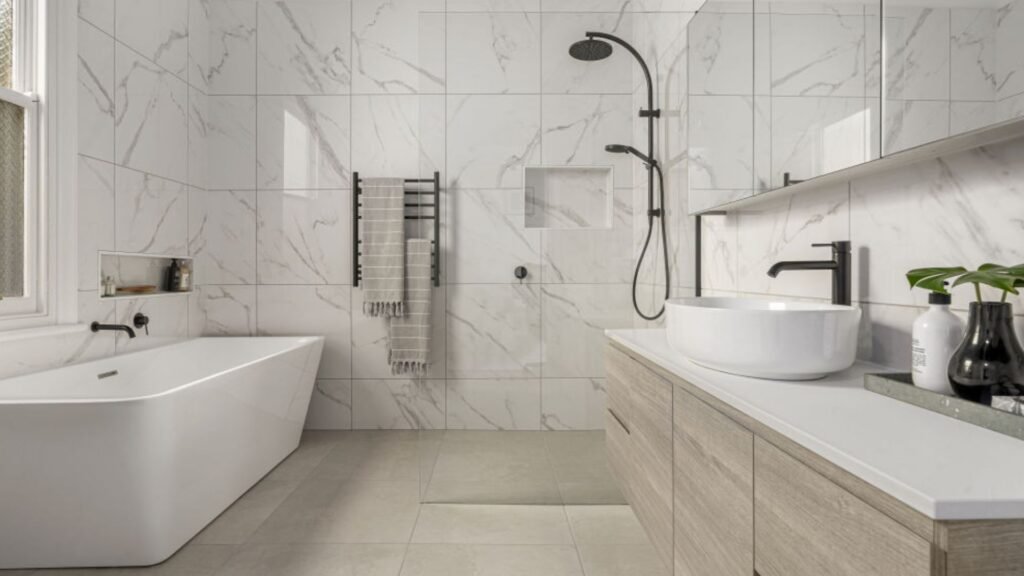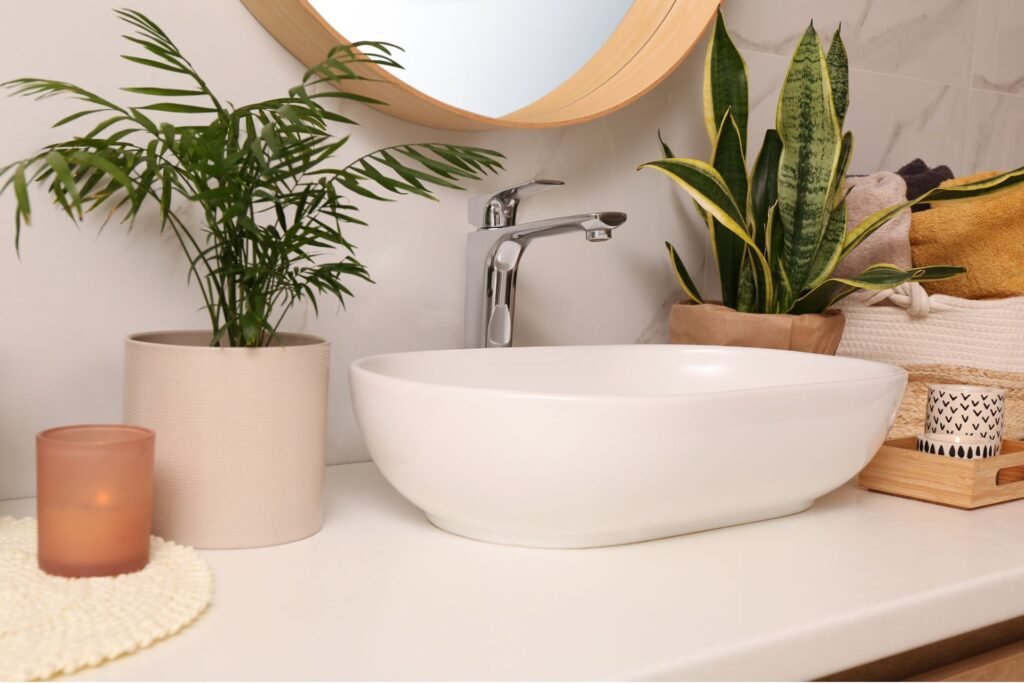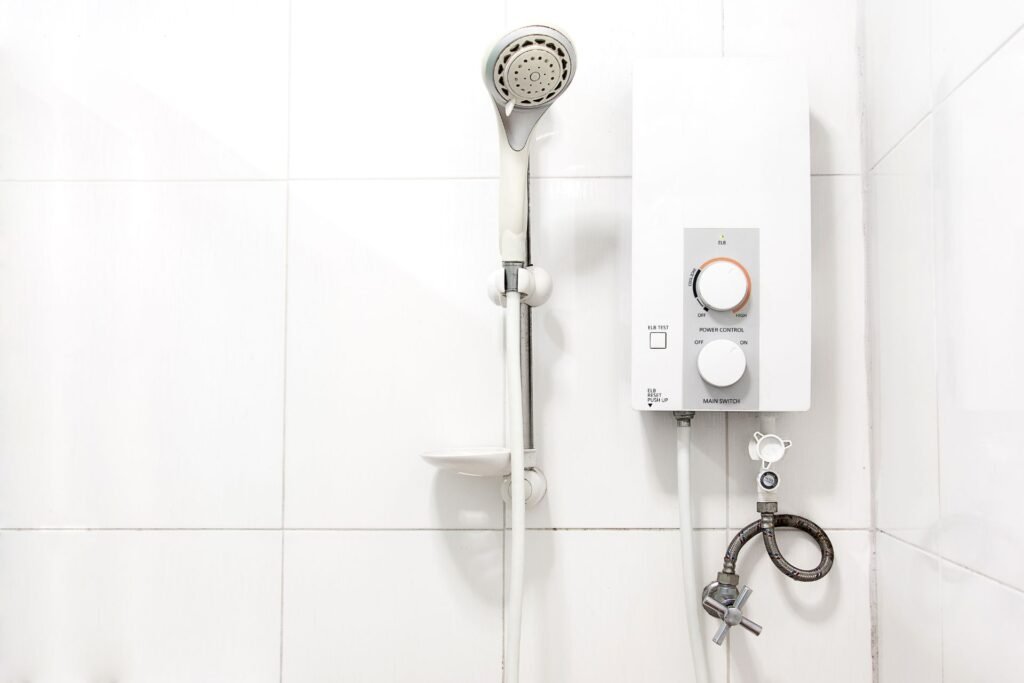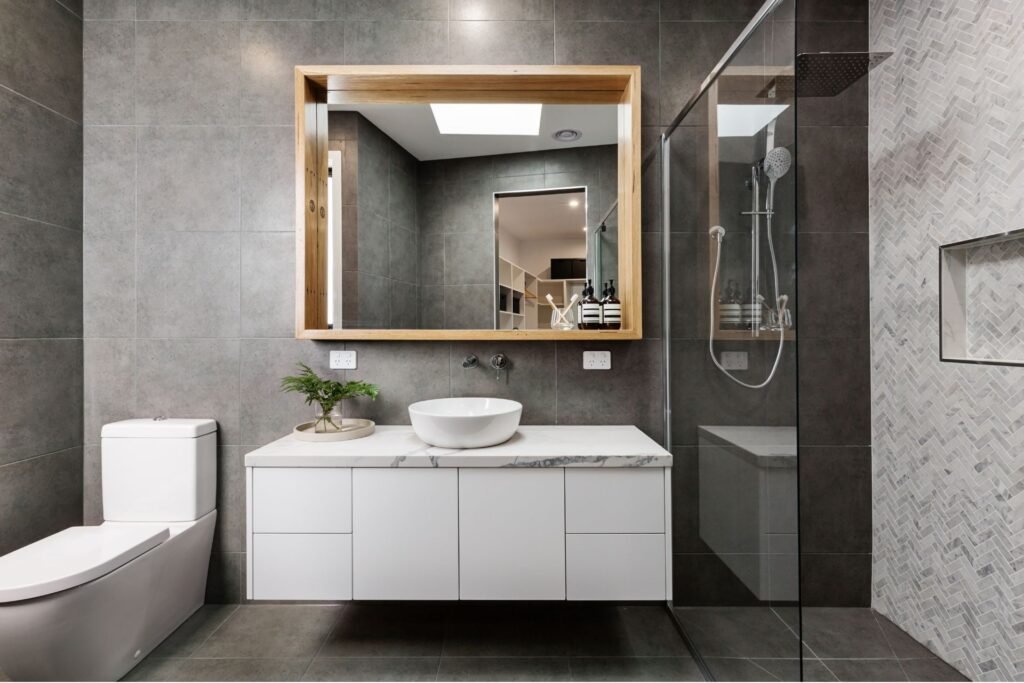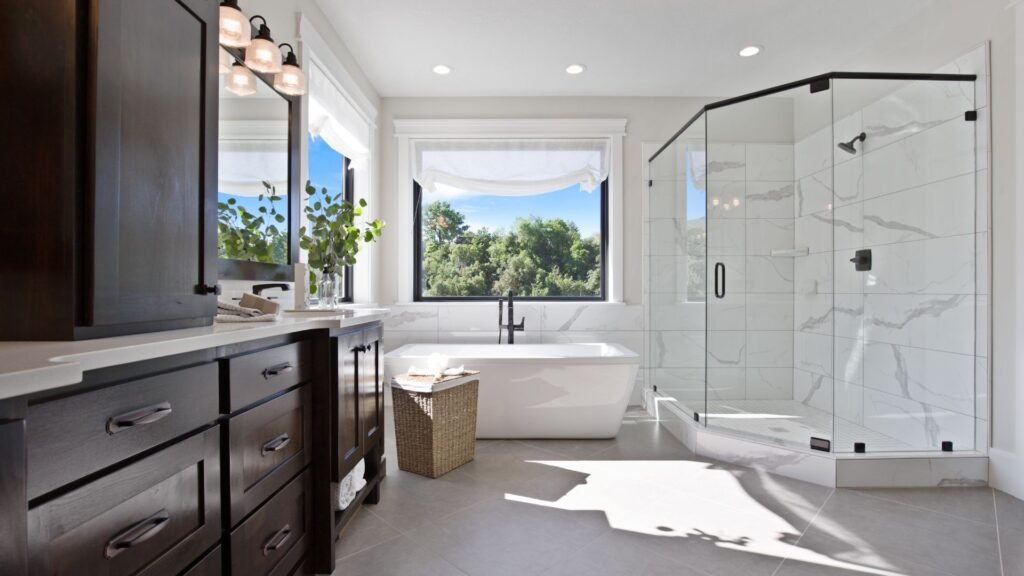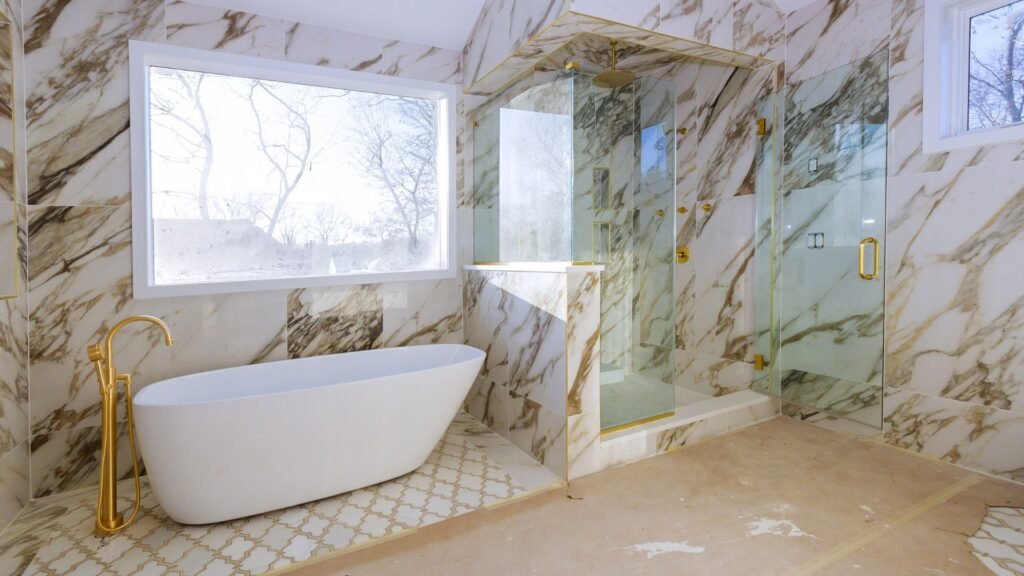Welcome to a comprehensive guide on tackling the pesky issue of bathroom smells that appear whenever it rains in New Zealand. You’re not alone if you’ve ever noticed an unpleasant odor wafting through your bathroom after a downpour. This common problem can be both frustrating and confusing, leaving many homeowners wondering why it happens and how to fix it. In this post, we’ll explore the reasons behind these unwanted smells and provide practical solutions to help you keep your bathroom fresh and odor-free, rain or shine.
In New Zealand, a bathroom that smells when it rains is often caused by poor ventilation, blocked drains, or sewer gas backflow. High humidity during rain can trap odors, while heavy rainfall may overwhelm drainage systems, leading to unpleasant smells. Identifying the source and improving ventilation, clearing drains, or checking plumbing can help eliminate these odors and keep your bathroom fresh.
Why Does The Bathroom Smell When It Rains
When it rains, you might notice an unpleasant odor coming from your bathroom. This is a common issue, especially in New Zealand, where the climate can play a significant role in exacerbating these smells, particularly in older homes. Understanding why this happens is the first step toward solving the problem, ensuring your bathroom remains a fresh and comfortable space.
Common Scenarios in NZ
New Zealand’s unique climate, characterized by high humidity and frequent rainfall, can intensify bathroom odors during wet weather. In older homes, where plumbing systems may not be up to modern standards, these issues are more prevalent. The combination of rain, humidity, and potentially outdated infrastructure creates an environment where smells can easily develop. For instance, in regions like Auckland, known for its damp conditions, or Wellington, with its high wind and rainfall, these smells can become particularly pronounced. The mix of moisture and older plumbing can lead to trapped air and water in pipes, causing odors to escape into your living space.
Brief Explanation
The main culprits behind these odors are usually related to plumbing and drainage issues. When it rains, the increased moisture and pressure on the drainage system can cause water to flow back into your pipes, bringing with it unpleasant smells. Here are the most common reasons your bathroom might smell when it rains:
1. Plumbing Issues: Leaks or cracks in the plumbing system can allow sewer gases to escape. When it rains, the added pressure from the rainwater can push these gases through the cracks and into your bathroom.
2. Drainage Problems: If your home’s drainage system is not functioning correctly, water may pool in areas it shouldn’t, leading to stagnant water that emits foul odors. Blocked or clogged drains are often to blame.
3. Trapped Moisture: Bathrooms are naturally humid environments, and when rain adds to the moisture, it can create the perfect conditions for mold and mildew to thrive. These fungi produce a musty smell that can quickly fill a bathroom.
Each of these issues is connected to the way your home’s plumbing and drainage systems interact with rainwater. It’s essential to identify the specific cause in your home to address the problem effectively.
Importance of Understanding the Cause
Identifying the root cause of these odors is crucial for several reasons. First, it allows you to address the problem at its source, rather than just masking the smell with air fresheners or temporary fixes. This ensures a more permanent solution, which is particularly important in maintaining the comfort and hygiene of your bathroom.
Moreover, understanding the cause can prevent further damage to your home. For example, if the smell is due to a plumbing leak, leaving it unchecked could lead to water damage, mold growth, and even structural issues over time. In contrast, addressing the issue promptly can save you from costly repairs down the road.
Finally, knowing why your bathroom smells when it rains can give you peace of mind. Instead of worrying every time the weather turns, you can be confident that your home is well-maintained and protected against these common issues.
In summary, while the smell in your bathroom during rain might seem like a minor annoyance, it’s often a sign of underlying issues that need to be addressed. By understanding the common scenarios in New Zealand, recognizing the possible causes, and taking action to fix the problem, you can ensure that your bathroom remains a pleasant and healthy space, regardless of the weather outside.

Common Causes Of Bathroom Smells After Rain
When the rain starts pouring down, you might notice an unwelcome odor creeping into your bathroom. This phenomenon is more common than you might think, and it usually happens due to a few key factors. Let’s dive into the common causes of bathroom smells after it rains and how they affect your home.
Poor Ventilation
How Rain Affects Ventilation
During a rainstorm, the humidity levels in the air can skyrocket, especially if your bathroom lacks proper ventilation. When windows and vents are closed to keep out the rain, the moist air inside your bathroom becomes trapped. This trapped moisture creates a breeding ground for odors, as the damp environment allows smells to linger and intensify. Over time, these odors can become embedded in porous surfaces like grout, towels, and shower curtains, making them difficult to eliminate even after the rain has stopped.
Signs of Poor Ventilation
One of the most obvious signs of poor ventilation in your bathroom is the presence of lingering odors that just won’t go away, no matter how much you clean. You might also notice condensation on mirrors, windows, or walls, which is a clear indication that moisture is not being properly ventilated out of the space. Another red flag is the growth of mold or mildew, often appearing as black or green spots on tiles, grout, or even the ceiling. These growths not only contribute to the bad smells but can also pose health risks if left untreated.
Blocked or Damaged Drains
Impact of Rain on Drains
Heavy rain can wreak havoc on your home’s drainage system, especially if the drains are already partially blocked or damaged. When the rainwater overwhelms the drainage capacity, it can lead to backups that push sewer gases and stagnant water back up through the pipes and into your bathroom. This situation is even more likely if your home has older plumbing or if your bathroom is located in a basement where the drains are more susceptible to flooding.
Symptoms
If your drains are struggling to handle the influx of rainwater, you’ll likely notice a few telltale signs. Gurgling noises coming from the toilet, sink, or shower drain are often the first clue that something is wrong. These noises occur when air is trapped in the pipes and is forced out by rising water levels. Slow-draining water is another common symptom, as the water struggles to flow down the pipes due to blockages or excessive pressure. Finally, unusual smells emanating from the drains are a sure sign that something isn’t right. These smells are often described as earthy, musty, or like sewage, and they can quickly fill the entire bathroom if not addressed promptly.
Sewer Gas Backflow
What It Is
Sewer gas backflow is a particularly unpleasant problem that occurs when the gases from the sewer system make their way back up through the plumbing and into your home. This can happen when the water seals in your bathroom’s plumbing fixtures, such as the P-trap in your sink, dry out or are compromised, allowing the gases to escape. Rain can exacerbate this issue by increasing the pressure in the sewer system, forcing the gases to seek an alternative route – often into your bathroom.
Signs of Sewer Gas
The most obvious sign of sewer gas backflow is a strong, foul odor that smells like rotten eggs or sulfur. This smell is unmistakable and can be quite overwhelming. In some cases, the presence of sewer gas can also lead to physical symptoms such as headaches, dizziness, or nausea, particularly if the exposure is prolonged or in a poorly ventilated area. It’s important to address this issue immediately, as sewer gas is not only unpleasant but also hazardous to your health.
Trapped Moisture
Rain and Humidity
Rainy weather naturally increases the humidity levels inside your home, and this can be especially problematic in bathrooms where moisture is already a constant challenge. When humidity rises, it can lead to trapped moisture in places like under sinks, behind walls, or in the corners of your bathroom. This trapped moisture provides the perfect environment for mold and mildew to grow, which can produce musty, unpleasant odors that permeate the air.
Mold Growth
Mold has a very distinctive smell it’s often described as earthy, damp, or like rotting wood. When mold starts growing in your bathroom, it can spread quickly if the moisture problem isn’t resolved. Mold spores can travel through the air and settle on various surfaces, making it difficult to eliminate without thorough cleaning and moisture control. If you notice a musty smell in your bathroom after it rains, it’s a good indication that mold might be lurking somewhere, possibly out of sight. Addressing the moisture problem and removing any visible mold is crucial to eliminating the odor and preventing it from returning.
By understanding these common causes of bathroom smells after rain, you can take the necessary steps to prevent and address them, ensuring your bathroom stays fresh and odor-free, no matter the weather outside.

How To Identify The Source Of The Smell
When an unpleasant odor fills your bathroom after a rain, it can be not only a nuisance but also a sign of a more significant underlying issue. To address the problem effectively, you need to identify the source of the smell. Here’s a step-by-step guide to help you through the process, ensuring you tackle the issue correctly.
Step-by-Step Guide:
1. Visual Inspection
Start by thoroughly inspecting your bathroom. This is a critical first step, as many causes of unpleasant odors can be identified with a careful look around.
- Mold: Check for any signs of mold, especially in hidden or less visible areas such as behind the toilet, under the sink, or around the edges of the shower. Mold tends to thrive in damp environments, and its presence is often accompanied by a musty smell.
- Water Stains: Look for any discoloration or water stains on the walls, ceiling, or floor. These stains can indicate a leak, which might be contributing to the odor.
- Condensation: Pay attention to any areas where condensation forms regularly. Excess moisture can lead to mold growth and foul smells, especially if ventilation is poor.
2. Sniff Test
If a visual inspection doesn’t reveal the source, the next step is to conduct a sniff test. This might sound simple, but it can be highly effective in isolating the smell.
- Follow the Smell: Start by sniffing around the areas where the odor seems strongest. Move systematically through the bathroom, paying attention to spots near drains, vents, and plumbing fixtures. The goal is to trace the smell back to its strongest point, which is often where the issue lies.
- Check Hidden Areas: Don’t forget to sniff in less obvious places like behind furniture or in cabinets. Odors can sometimes be trapped in enclosed spaces, making them harder to detect initially.
3. Testing Drains
Drains are common culprits when it comes to bad smells, especially after rain. Here are some simple DIY methods to test if your drains are the source of the problem.
- Blockage Test: Pour a small amount of water down each drain and observe how quickly it drains away. If the water drains slowly or not at all, this could indicate a blockage that’s causing the smell. You can also use a drain snake or a plunger to try and clear any blockages.
- Trap Water Level: Check the water level in the trap (the U-shaped pipe under your sink or shower). The trap is designed to hold water and prevent sewer gases from entering your bathroom. If the water level is low, it might allow odors to escape. Pour some water into the trap to see if this eliminates the smell.
- Odor Test: Pour a small amount of bleach or vinegar down the drain and wait a few minutes. If the smell intensifies, the drain might be the source, and you may need to clean it more thoroughly.
When to Call a Professional
While some issues can be resolved with a bit of DIY effort, there are times when calling in a professional is the best course of action. Here are some indicators that you might need expert help:
- Persistent Odor: If the smell persists despite your efforts to locate and fix the problem, it’s time to call a professional. This could indicate a more serious issue, such as a hidden leak or a problem with your plumbing system that requires specialized tools and expertise to diagnose.
- Visible Damage: If you find significant water damage, mold, or other visible signs of a problem during your inspection, it’s best to have a professional assess the situation. Addressing these issues promptly can prevent further damage and more expensive repairs down the line.
- Complex Plumbing Issues: If you suspect that the problem lies within your plumbing, such as a broken pipe or a sewer line issue, it’s crucial to involve a professional. Plumbing problems can be complex and potentially hazardous, so it’s better to leave them to the experts.
By following these steps, you can effectively identify the source of any unpleasant smells in your bathroom and take appropriate action to eliminate them. Whether through DIY methods or with the help of a professional, addressing the problem early can save you time, money, and the frustration of living with a lingering odor.

Solutions To Eliminate Bathroom Smells
Unpleasant odors in the bathroom can be more than just an inconvenience; they can indicate underlying issues that need addressing. Here’s a detailed guide on how to tackle these smells effectively, ensuring your bathroom remains fresh and inviting.
Improving Ventilation
A well-ventilated bathroom is key to preventing and eliminating bad odors. Proper ventilation helps control humidity levels, which in turn reduces the growth of mold and mildew two common culprits of persistent smells.
Ventilation Strategies
- Exhaust Fans: Installing a powerful exhaust fan is one of the most effective ways to improve ventilation in your bathroom. Make sure to run the fan during and after showers to remove excess moisture from the air. If your current fan isn’t sufficient, consider upgrading to one with a higher capacity.
- Opening Windows: If your bathroom has windows, open them regularly to allow fresh air to circulate. This simple action can significantly reduce the buildup of moisture and odors.
- Installing Vents: Additional vents can help increase airflow, especially in bathrooms without windows. These vents work in conjunction with your exhaust fan to enhance ventilation further.
Dehumidifiers
- Reducing Moisture and Odors: Dehumidifiers are particularly useful in bathrooms prone to excessive moisture. By extracting moisture from the air, they help prevent the damp environment in which mold and mildew thrive. This, in turn, reduces the likelihood of musty odors. Place a small, portable dehumidifier in your bathroom, especially if it lacks proper ventilation, to maintain a dry and odor-free environment.
Clearing Blocked Drains
Blocked drains are a common source of bathroom odors, often caused by a buildup of hair, soap scum, and other debris. Addressing these blockages promptly can eliminate unpleasant smells.
DIY Methods
- Natural Solutions: For minor clogs, a mixture of baking soda and vinegar can be an effective and eco-friendly solution. Pour a cup of baking soda down the drain, followed by a cup of vinegar. Let the mixture sit for about 15 minutes, then flush it with hot water. This method helps break down organic matter and deodorize the drain.
- Chemical Solutions: If natural methods don’t work, commercial drain cleaners can be used to dissolve stubborn clogs. These products are specifically designed to break down hair and soap scum quickly. However, use them sparingly, as they can be harsh on pipes with frequent use.
Professional Help
- When to Call a Plumber: If DIY methods fail or if the blockage is severe, it’s time to call a professional. A plumber can diagnose and clear more complex blockages that might be causing persistent odors. Regular professional maintenance can also help prevent future issues.
Preventing Sewer Gas Backflow
Sewer gas backflow is a serious issue that can lead to foul odors in your bathroom. This problem usually arises from a malfunction in the plumbing system, such as a dry P-trap or a blocked sewer vent.
Plumbing Checks
- Regular Maintenance: Ensure that P-traps (the U-shaped pipes under your sinks and showers) are functioning correctly and filled with water. The water in the trap acts as a barrier, preventing sewer gases from entering your home. If you notice a smell, run water into the drains to refill the traps.
- Proper Seals: Inspect seals around toilets and drains regularly. Worn-out seals can allow sewer gases to escape into your bathroom. Replacing faulty seals is a quick fix that can make a big difference.
Sewer Vent Inspection
- Functionality Check: The sewer vent plays a crucial role in preventing gas backflow by allowing air to escape from the plumbing system. Ensure that the vent is free from obstructions, such as leaves or debris, which can impede its function. If you suspect a blockage, a professional plumber can clear the vent and restore its proper operation.
Dealing with Trapped Moisture
Moisture trapped in the bathroom is a breeding ground for mold and mildew, both of which contribute to unpleasant odors. Keeping your bathroom dry is essential to maintaining a fresh-smelling space.
Mold Prevention Tips
- Wipe Down Surfaces: After using the bathroom, wipe down wet surfaces, such as shower walls, mirrors, and countertops, to prevent moisture buildup. This simple habit can go a long way in reducing the chances of mold and mildew growth.
- Use Mold-Resistant Products: Consider using mold-resistant paint, caulk, and grout in your bathroom. These products are designed to withstand the damp conditions common in bathrooms and can help prevent the growth of mold.
Cleaning Techniques
- Effective Mold Removal: If mold and mildew have already started to form, use a mixture of bleach and water or a commercial mold remover to clean the affected areas. Make sure to scrub thoroughly and rinse with clean water. Regular cleaning, especially in high-moisture areas, is key to preventing odors from returning.
By implementing these strategies, you can effectively eliminate bathroom smells and create a cleaner, more pleasant environment in your home. Regular maintenance and proactive measures will ensure that your bathroom remains a fresh and inviting space.

Preventative Measures For Long-Term Odor Control
Regular Maintenance
Regular maintenance is the cornerstone of preventing long-term odors in your bathroom, especially in New Zealand’s diverse climate. By consistently checking and cleaning your bathroom, you can catch potential issues before they become significant problems. This involves routine tasks like cleaning drains, checking seals around the toilet and sink, and ensuring that the ventilation system is functioning correctly. Even small issues, such as a slow-draining sink or a minor leak, can lead to persistent odors if not addressed promptly. Regular maintenance not only keeps your bathroom smelling fresh but also extends the life of your fixtures, saving you money in the long run.
Seasonal Considerations
New Zealand’s unique climate means that your bathroom maintenance routine should adapt to the seasons. During the colder, wetter months, increased humidity can cause mold and mildew to thrive, leading to unpleasant odors. It’s crucial to enhance ventilation during this time, either by running exhaust fans more frequently or by opening windows to reduce moisture build-up. Conversely, in the warmer months, you might notice an increase in drain odors due to higher temperatures causing stagnant water in pipes to emit foul smells. Regularly flushing drains with a mixture of baking soda and vinegar can help neutralize these odors. By adjusting your maintenance routine to align with seasonal changes, you can proactively prevent odor issues before they arise.
Upgrading Fixtures
Sometimes, despite your best efforts, older fixtures may not be up to the task of keeping your bathroom odor-free. If you’re dealing with persistent smells that regular maintenance can’t solve, it might be time to consider upgrading your fixtures. Modern ventilation systems, for example, are designed to be far more efficient at removing moisture and odors from the air than older models. Similarly, upgrading to newer plumbing fixtures that are less prone to leaks or that have more effective seals can also make a significant difference. While the initial investment might seem high, the long-term benefits of a fresh-smelling bathroom and the avoidance of costly repairs down the road make it a worthwhile consideration.

When To Seek Professional Help
Identifying Serious Issues
While many homeowners enjoy the satisfaction of tackling DIY projects, there are times when a problem goes beyond what you can handle with a wrench and a YouTube video. Recognizing these situations early can save you from further damage, costly repairs, or even health hazards.
For instance, if you’re dealing with persistent water leaks that won’t stop no matter what you try, or you notice signs of structural damage like sagging ceilings or warped walls, it’s time to call in the experts. Other red flags include sudden drops in water pressure, unusual noises from your plumbing or HVAC systems, and lingering odors that indicate a deeper issue. Mold growth, frequent clogs, or unexplained increases in utility bills are also signs that professional intervention is needed.
In short, if a problem persists despite your best efforts, or if you suspect it’s causing significant damage, don’t wait to call a professional. They have the expertise and tools to diagnose and fix the issue correctly, preventing small problems from becoming big headaches.
Choosing the Right Professional
Once you’ve identified the need for professional help, the next step is finding the right expert for the job. In New Zealand, there are plenty of qualified plumbers and HVAC technicians, but how do you choose the best one?
Start by asking for recommendations from friends, family, or neighbors who have had similar work done. Personal referrals are invaluable because they come from people you trust. Online reviews and ratings on platforms like Google, Trade Me, or the NZ Plumbers, Gasfitters, and Drainlayers Board website can also offer insight into a professional’s reputation.
When you’ve shortlisted potential candidates, don’t hesitate to ask them about their qualifications, licenses, and insurance. A reliable professional will have no problem providing this information. Additionally, consider how long they’ve been in business; experience often translates to expertise. For HVAC technicians, ensure they are certified by the relevant industry bodies in New Zealand, as this guarantees they are up to date with the latest safety standards and best practices.
Finally, trust your instincts. Choose a professional who communicates clearly, listens to your concerns, and offers transparent pricing. A trustworthy tradesperson should also provide a written estimate before starting any work, so you know exactly what to expect.
Cost Considerations
The cost of hiring a professional can vary widely depending on the nature of the issue and the level of expertise required. However, it’s essential to remember that professional services often come with guarantees that DIY fixes don’t.
In New Zealand, you might pay anywhere from $80 to $150 per hour for a plumber or HVAC technician, depending on the region and the complexity of the job. Some professionals may charge a call-out fee, which covers their travel time and initial assessment. While this might seem like an added expense, it often includes a thorough diagnosis, which is crucial for resolving the problem efficiently.
Consider the long-term benefits of hiring a professional: quality workmanship, warranties on parts and labor, and peace of mind that the job has been done right. In many cases, investing in professional help early on can prevent more costly repairs down the line. Additionally, a professional service can enhance the longevity and efficiency of your plumbing or HVAC system, potentially saving you money on utility bills.
In summary, while the upfront costs may seem steep, the long-term savings, safety, and peace of mind that come with professional services are well worth the investment. Whether it’s fixing a persistent issue, upgrading your system, or ensuring everything runs smoothly, seeking professional help is often the smartest choice.

FAQs: About The Bathroom Smells When It Rains NZ
Conclusion
Addressing bathroom smells that occur after it rains often involves understanding the main causes, such as issues with ventilation, plumbing, or drain blockages. By identifying these root problems and applying appropriate solutions like improving airflow, sealing gaps, or clearing drains you can effectively eliminate unwanted odors. Remember, most of these issues are manageable with the right approach, so there’s no need to worry. Whether you choose to tackle these fixes yourself or seek the help of a professional, taking prompt action will ensure your bathroom remains fresh and inviting, even during the wettest weather.
About the Author:
Mike Veail is a recognized digital marketing expert with over 6 years of experience in helping tradespeople and small businesses thrive online. A former quantity surveyor, Mike combines deep industry knowledge with hands-on expertise in SEO and Google Ads. His marketing strategies are tailored to the specific needs of the trades sector, helping businesses increase visibility and generate more leads through proven, ethical methods.
Mike has successfully partnered with numerous companies, establishing a track record of delivering measurable results. His work has been featured across various platforms that showcase his expertise in lead generation and online marketing for the trades sector.
Learn more about Mike's experience and services at https://theleadguy.online or follow him on social media:





